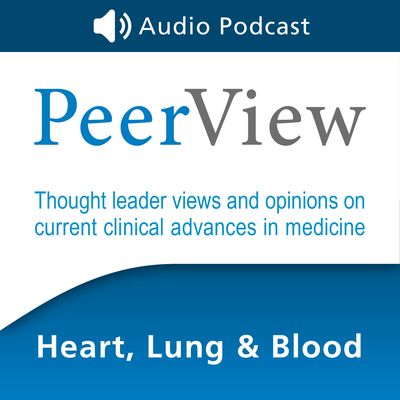PeerView (PVI) is a leading provider of high-quality, innovative continuing education (CME/CE/CPE and MOC) for clinicians and their interprofessional teams. Combining evidence-based medicine and instructional expertise, PeerView activities improve the knowledge, skills, and strategies that support clinical performance and patient outcomes. PeerView makes its educational programming and expert-led presentations and symposia available through its network of popular podcast channels to support specific specialties and conditions. Each episode includes a link to request CME/CE credit for participation. PeerView is solely responsible for the selection of topics, the preparation of editorial content, and the distribution of all materials it publishes.
http://ww2.peerview.com
Nicola A. Hanania, MD, MS - Living With Severe Asthma: Understanding the Patient Experience to Guide Therapeutic Decision-Making
Go online to PeerView.com/AZE860 to view the activity, download slides and practice aids, and complete the post-test to earn credit. Approximately 20% of patients with asthma have uncontrolled, moderate to severe disease with recurrent exacerbations and persistent symptoms despite maximized standard-of-care controller therapy. Many of these patients have substantially reduced lung function and continue to lose lung function over time. About 50% of those with asthma have type 2 (T2) inflammation, which is mediated by cytokines such as interleukin (IL)-4, IL-5, and IL-13. Novel biologic agents that target T2 cytokines have shown efficacy and safety in these patients and are now available, with others in development, providing clinicians with more opportunities to personalize therapy for patients with severe asthma. In this activity, based on a recent symposium held in New Orleans, experts in pulmonology share actual patient stories to illustrate the recognition and burden of severe asthma in patients, as well as discuss best practices and strategies for managing this condition and facilitating effective collaboration with patients to actively engage them in their own care. Upon completion of this activity, participants should be better able to: Discuss the inflammatory mediators and mechanisms that provide the basis for the phenotypes and endotypes of severe asthma and their relevance to novel biologic therapies, Evaluate patients with asthma for symptom severity, disease phenotypes, exacerbation risk, and eligibility for biologic therapies, Apply evidence-based guidelines and the latest clinical data when selecting treatment for patients with severe asthma, Use strategies to communicate effectively with patients about self-management and to improve inhaler technique, adherence, and overall quality of life in patients with severe asthma
